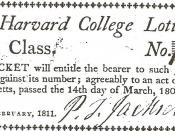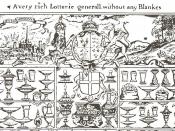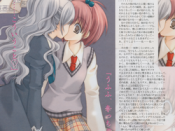Shirley Jackson's short story "The Lottery" does a great job disguising important clues. It is her subtle way of portraying what sounds like an innocent story that intrigues the reader. After reading "The Lottery" a popular initial reaction is to wonder why the ending is not obvious while reading through the rising action. It is not until one re-reads the story where the intricate details begin to lead to the surprising result of this odd ritual. Jackson's creative way of portraying these clues allow the reader to suspect something suspicious is taking place, but she also suppresses these feelings by intertwining contradicting clues. "The work is considered one of the most haunting, enigmatic short stories of modern American fiction. In her allegorical tale, Jackson revealed evil that is inherent in human nature in an objective, detached manner of narration that heightens the reader surprise and horror at the story's conclusion."
In the beginning of the story, Jackson describes the lottery event as an expected tradition that occurs every year on the assigned date. After reading only the opening paragraph, the reader can gather that it is not a "normal" lottery taking place.
In some towns there were so many people that the lottery took two days and had to be started on June 26th, but in this village, where there were only about three hundred people, the whole lottery took less than two hours.
This does not seem to infer that anything dangerous our harmful is going on, but this is a direct clue that Jackson is not describing a typical lottery. The description causes the reader to be skeptical of the event taking "less than two hours" because that it is not how a joyous occasion would be described. This is also present...


